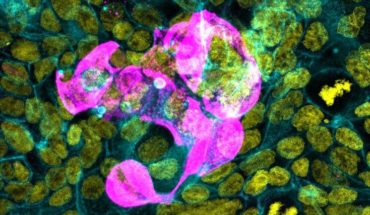The Scottish Medicines Consortium (SMC) has announced that the anti-fibrotic medicine nintedanib has been accepted for use by NHS Scotland for the treatment of patients with the lung scarring disease pulmonary fibrosis. Action for Pulmonary Fibrosis (APF) has spearheaded a campaign for patients in Scotland with the support of patients, families and medical experts, to give patients access to life-extending anti-fibrotic drugs at the point of diagnosis. Evidence shows that antifibrotics not only slow progression but also extend lives by up to two years or more.
Until now, patients with pulmonary fibrosis in Scotland had no licensed treatment options available that effectively modified the course of their disease.
Some patients living with the most common type of the disease, idiopathic pulmonary fibrosis (IPF), can already access the drug but this is the first time the drug is being made available to the estimated 1,500 patients in Scotland living with other forms of the disease, such as:
· pulmonary fibrosis associated with rheumatoid arthritis and scleroderma
· hypersensitivity pneumonitis (disease like farmer’s lung and bid keepers’ disease)
· occupational diseases such as asbestosis and silicosis.
Steve Jones, Chair of Trustees, Action for Pulmonary Fibrosis, says:
“We are delighted with today’s SMC decision, which offers real hope to people in Scotland living with pulmonary fibrosis who for so long have felt powerless with the huge physical and emotional burden of living with this debilitating disease, and while it steadily worsens. It is encouraging that they will now have a treatment that can slow its progress.”
The news has been long awaited for by patients across Scotland. Bill Drummond, 80, a retired electrical engineer from Grangemouth, who has pulmonary fibrosis associated with rheumatoid arthritis, says:
“This is wonderful news. I was diagnosed with pulmonary fibrosis 18 months ago but there was no treatment my doctors could give me. Nintedanib has been shown to slow progress of the disease and will give hope to the hundreds of people in Scotland, like me, living with this devastating condition”.
Dr Nik Hirani, Respiratory Physician at the Royal Infirmary at Edinburgh and Senior Lecturer at the Queen’s Medical Research Institute, University of Edinburgh, says:
“I’m delighted with this decision, which raises the prospect of extending treatment with antifibrotic medicines to most people living with pulmonary fibrosis in Scotland. This will lead to better quality of life and longer lives for hundreds of people living with this devastating disease.”
- New lipid-based pathway discovered as key to memory formation - 25th June 2025
- Crucial link could explain how Alzheimer’s takes hold - 25th June 2025
- Understanding Your Mind Can Improve Daily Life - 25th June 2025







